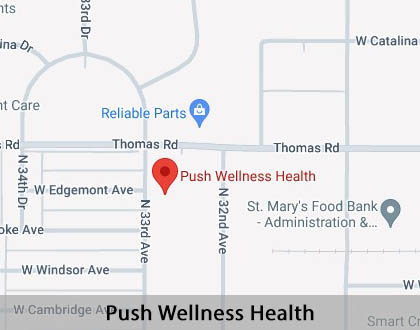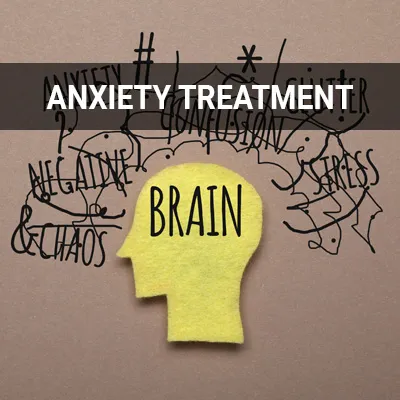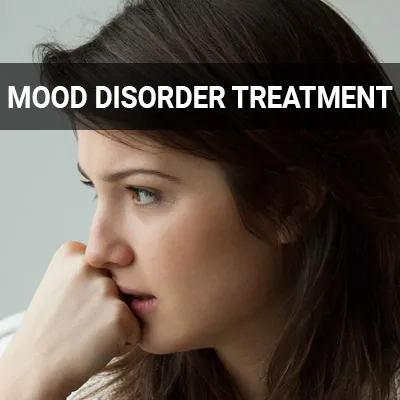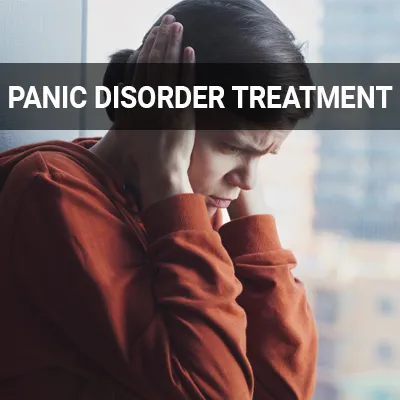PTSD Treatment Phoenix, AZ
Those exposed to traumatic events or circumstances may develop a condition known as post-traumatic stress disorder or PTSD. People with PTSD experience disturbing thoughts, feelings, and other upsetting symptoms long after the traumatic event has passed. If not treated, PTSD can lead to other physical and mental health symptoms that have the potential to be life-threatening. Our clinic provides services for children, adolescents, adults, and seniors. We have specialized clinicians experienced in working with each age group.
Signs of PTSD should never be ignored. We offer PTSD treatment in Phoenix and the surrounding area to help people get their lives back. Call (480) 737-4658 for more information or to schedule an appointment.
What is PTSD
Post-traumatic stress disorder, formerly known as shell shock, is largely associated with veterans of military combat. However, this disorder can affect anyone who has witnessed or gone through an extremely disturbing experience, such as an accident, violent crime, the sudden death of a loved one, or another traumatizing event. An estimated one in 11 people will experience PTSD in their lifetime. In fact, even indirect exposure to traumatic events can cause PTSD.
Most people have temporary difficulties after a traumatic event, but those with PTSD experience these difficulties for months or years after the event. They continue to grapple with severe anxiety, excitability, intrusive thoughts, and flashbacks. Since PTSD may not go away on its own, treatment is crucial. If not treated, PTSD can lead to depression, anxiety, suicidal ideation, substance abuse, and other maladaptive behaviors that derail a person’s life and sense of peace.
“An estimated one in 11 people will experience PTSD in their lifetime.”
Symptoms of PTSD
Someone struggling with PTSD may not entirely understand what is going on or that they even have a mental disorder. For this reason, people need to be able to recognize the symptoms and know when to get help. Symptoms may show up within a month after a traumatic event or years later. In either case, they disrupt a person's daily life and threaten their mental and physical health. Symptoms may vary by person and fluctuate over time, but they generally fall into four categories:
- Avoidance symptoms. Sufferers of PTSD go to great lengths to avoid talking or even thinking about the event. They avoid people, places, and things that remind them of the event.
- Changes in physical/emotional reactions. Those with PTSD can be hypervigilant or easily startled and have trouble sleeping and concentrating. They may exhibit irritability or angry outbursts and engage in self-destructive behavior. A person with PTSD may harbor feelings of overwhelming guilt or shame.
- Intrusive thoughts and memories. The person may have flashbacks or nightmares related to the event. They may be plagued by recurrent, unwanted memories or thoughts and even have strong physical reactions to things that remind them of the event.
- Negative changes in thinking/mood. They may isolate themselves from friends and family, become depressed, emotionally numb, and feel hopeless about themselves, the world, and the future.
If one notices a significant number of these symptoms in themselves or someone close, we recommend seeking help from a mental health professional right away.
“Symptoms may show up within a month after a traumatic event or years later.”
Causes of PTSD
Not all who experience trauma will develop PTSD. The inner workings of the human brain are complex. As with most mental health conditions, there is still much we have to learn about the causes of PTSD. The reasons some develop the disorder and others do not need further investigation. Whether it is due to genetic and environmental circumstances, structural and chemical differences in the brain, or a combination of these factors is a subject of debate. However, research finds that PTSD is not a matter of low intelligence or moral weakness, but a condition that can happen to anyone and must be met with compassion.
Genetic predisposition has been identified as a major risk factor for developing PTSD. People who are injured or experience the traumatic event directly are at higher risk. Combat veterans, refugees, women, and those from disadvantaged socio-economic backgrounds appear to develop the disorder in larger numbers. Also, those that have a family history involving violence and substance abuse are at greater risk, along with those already struggling with mental health issues.
“Genetic predisposition has been identified as a major risk factor for developing PTSD.”
Check out what others are saying about our mental wellness services on Yelp: PTSD Treatment in Phoenix, AZ
Treatments for PTSD
Treatment is different for each person but often employs a combination of medication and therapy. The majority of therapies fall under the umbrella of cognitive-behavioral therapy (CBT). While there are different approaches to this therapy, all aim to change negative thought and behavior patterns.
Because chemical imbalances in the brain are involved in PTSD, we may refer a patient to a psychiatrist who can prescribe medication to help ease symptoms such as nightmares, anxiety, insomnia, and depression. Our team works with each patient to find the right combination of medication and therapy.
“While there are different approaches to this therapy, all aim to change negative thought and behavior patterns”
Questions Answered on This Page
Q. What are the symptoms of PTSD?
Q. How can I help a loved one with PTSD?
People Also Ask
Q. When should you seek help if you or someone else is suffering from a mood disorder?
Helping a Loved One With PTSD
The loved ones of those living with PTSD are often at a loss as to how to help. They may feel hurt by their partner, friend, or family member's moodiness, outbursts, or distance. Perhaps the loved one is also dealing with a substance abuse disorder that is wreaking havoc on their lives and the lives of those close to them. Some feel their loved one has become a stranger.
The important thing to remember is not to take the loved one's behavior personally and understand they are not acting this way on purpose. It is important to set boundaries and be supportive. Family members and friends do not have to tolerate harmful behaviors but should be available to assist their loved ones in finding help. Having patience and giving the person space while still providing companionship is key. Learning as much as one can about the disorder goes a long way in helping establish this understanding.
Family members should strive to minimize stress in the home and empower the individual. Routines and structure are excellent ways to create a sense of stability and normalcy at home. Finally, family members should practice self-care. It is difficult to take care of another without first taking care of oneself.
“It is important to set boundaries and be supportive.”
Frequently Asked Questions
Q. What medications are used to treat PTSD?
A. A wide variety of medications help treat the symptoms of PTSD. A doctor may prescribe anything from antidepressants such as SSRIs and antianxiety agents to antipsychotic medications. If the therapist feels medication could be helpful, they will refer you to a psychiatrist who can help.
Q. Can you help someone who has PTSD and substance abuse or other mental health issues?
A. We get this question often, and the answer is yes. It is common and understandable for someone who has PTSD to struggle with other mental health issues, especially substance abuse. Our team consists of professionals with years of experience treating most mental health issues, and they understand the complexity of co-existing mental illnesses.
Q. Do you offer counseling for those living with someone who has PTSD?
A. We counsel individuals, couples, and families affected by PTSD. We realize that the friends and family members of those with the disorder are also greatly affected. Our team encourages those living with a person with PTSD to seek out support for themselves as well as their loved ones.
Q. How long must a person exhibit symptoms before being diagnosed with PTSD?
A. About a month. Symptoms may appear months or years later, but if they last more than a month in a way that interferes with work or home life, an individual may have PTSD. The best thing to do is for the person to have a professional evaluation.
Q. How long does PTSD treatment last?
A. The answer to this question is different for each person. Treatment typically lasts 6 to 12 weeks, but in some cases, it may last longer. The length of treatment depends on the severity of the person's condition, the types of treatment needed, and if the person has a co-occurring disorder.
Start Feeling Better – Visit Us Today
By visiting us as soon as possible, our team can help get you the professional treatment you need. Instead of waiting around and allowing the symptoms to get worse, we can provide you with treatment options.
Definitions
Call Us Today
If PTSD is wreaking havoc in your life or the life of someone you care about, help is available from the caring and experienced professionals at Push Wellness Health. We help people with PTSD get back their lives and renew their hope for the future. Call us now at 480-737-4658 to learn more and schedule an appointment.
Helpful Related Links
- American Psychiatric Association (APA). American Psychiatric Association (APA). 2024
About our business and website security
- Push Wellness Health was established in 2022.
- We accept the following payment methods: American Express, Check, Discover, MasterCard, and Visa
- We serve patients from the following counties: Maricopa County
- We serve patients from the following cities: Phoenix, Tolleson, Sun City, Paradise Valley, Gilbert, Chandler, Tempe, Mesa, Queen Creek, Scottsdale, and Glendale
- Norton Safe Web. View Details
- Trend Micro Site Safety Center. View Details
Back to top of PTSD Treatment










